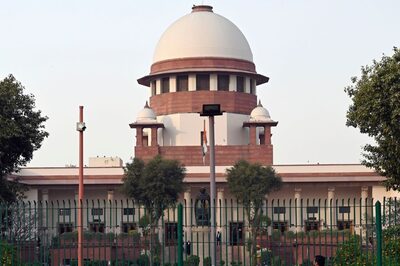
views
New Delhi: Amid controversies over its use of US business visas, Infosys on Tuesday said an American court has sought documents and records related to the company's sponsorships and utilisation of B1 business visas.
The development comes at a time when Infosys is facing a lawsuit by a former employee Jack Palmer, alleging that he was asked by the firm to sign on documents which said workers were heading to the US to have meetings rather than to work there.
The country's second largest software exporter said it has received a "subpoena" from a Grand Jury in the US District Court for the Eastern District of Texas.
"The subpoena requires that Infosys provide to the Grand Jury certain documents and records related to the company's sponsorships for, and uses of, B1 business visas," Infosys said in a statement.
It added that Infosys intends to comply with the subpoena and cooperate with the Grand Jury's investigation.
A subpoena is a writ issued by a court of justice requiring a person to appear before the court at a specified time.
Palmer in his lawsuit has also alleged that this was done to "creatively" overcome H1-B visa caps.
Recently, Infosys said its business could be adversely affected if the US decides to restrict the visa programme as a fallout of the case.
"In the event that the US government undertakes any actions which limit the B1 business visa programme or other visa programme that we utilise, this could materially and adversely affect our business and results of operations," Infosys had said in a filing to the US Securities and Exchange Commission (SEC).
B1 business visas are intended for short-term uses, such as consulting with business associates, attending business conventions or negotiating contracts.
H-1B visa, on the other hand, is a non-immigrant visa, which allows US employers to temporarily employ foreign workers in specialty occupations.
A US Senator had submitted a letter to the US Secretary of the State and the Secretary of Homeland Security, requesting that their respective departments review the B1 business visa programme and investigate the manner in which it is being utilised by companies, including Infosys.
Infosys had also said that uncertainty of working visa availability in the US results in disparate expenses from quarter to quarter.
The company incurred USD 13.3 million in costs for visas in the three months ended September 30, 2010, against $7.7 million in the three months ended March 31, 2011, according to a regulatory filing.
The software exporter had also raised concerns that legislation in certain countries, including the US and the UK, could restrict outsourcing work to Infosys or limit its ability to send employees to the client sites.
"Recently, some countries and organisations have expressed concerns about a perceived association between offshore outsourcing and the loss of jobs.
"It is possible that there could be a change in the existing laws or the enactment of new legislation restricting offshore outsourcing or imposing restrictions on the deployment of, and regulating the wages of, work visa holders at client locations, which may adversely impact our ability to do business in the jurisdictions in which we operate, especially with governmental entities," the company said.
As of March 31, 2011, about 10,100 employees (not including Infosys BPO employees or employees of its wholly owned subsidiaries) held H-1B visas, which allow people to remain in the US for up to six years.
Another 2,200 people held L-1 visas (not including Infosys BPO employees or employees of its wholly owned subsidiaries), which allow employees to stay in the US only temporarily.




















Comments
0 comment